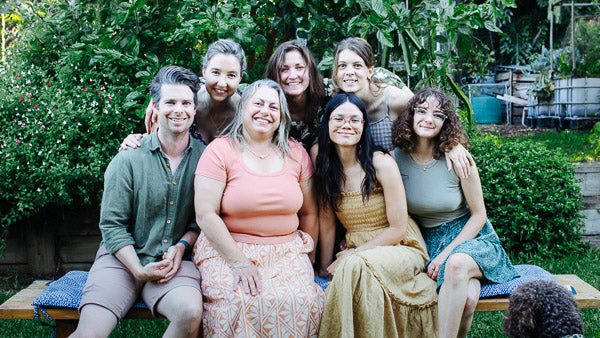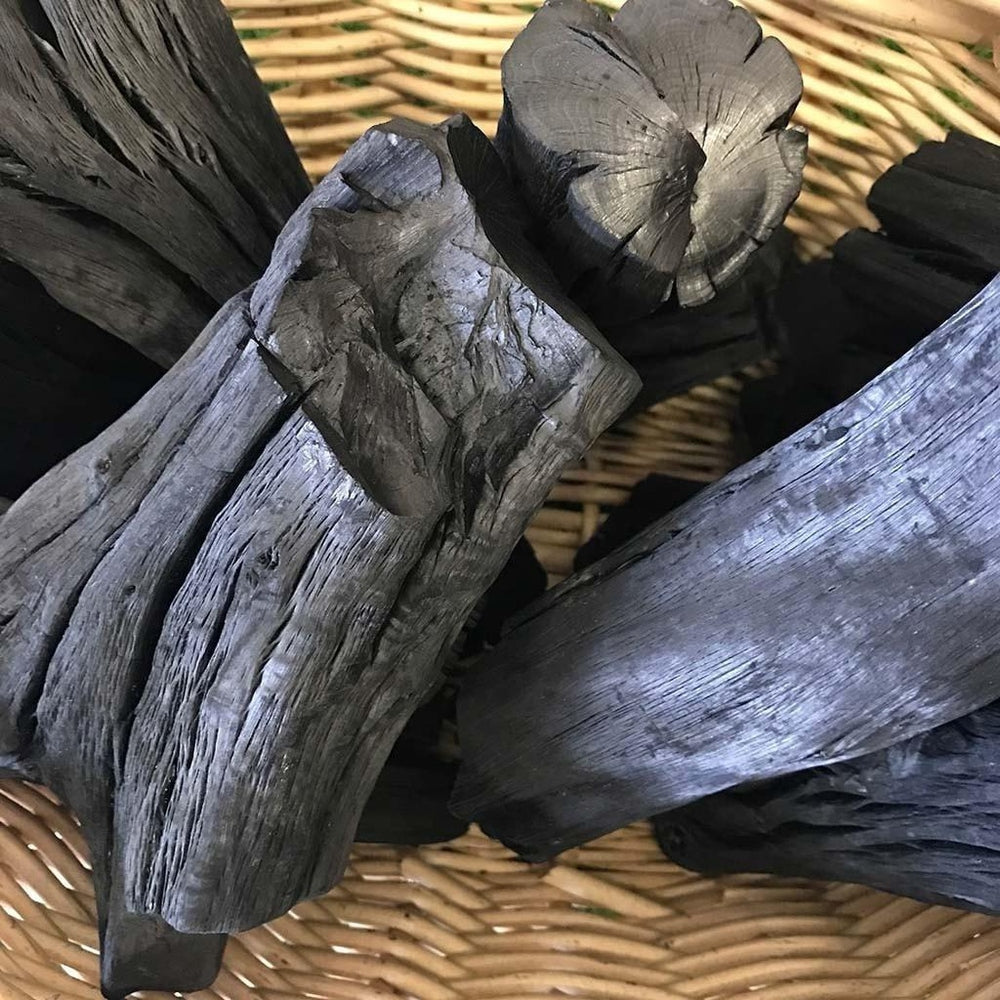One unit of Binchotan is 1g at a cost of 15c/gram. We can only accept online orders of at least 100g due to the smallest pieces being mostly 100g and over.
Please come in store to pick up less than 100g if we have them.
What is Binchotan Charcoal?
Binchotan, also known as shiro-zumi or white charcoal, is an activated charcoal or carbon made in various regions of Japan. Our Binchotan comes from the Kishu or Tosa regions. It is a traditional material and is widely used in Japan for food preparation, as a smoke-free, long-burning BBQ fuel and Ikebana (Japanese flower arranging).
Other applications include water filtration, humidifying, air filter, radio frequency shielding, electromagnetic wave absorber, bathroom/cupboard/fridge deodorising and personal care products.
This Binchotan is made from 100% Ubame Oak (Quercus phillyraeoides) which is the official tree of Wakayama prefecture, Japan where it is made.
How is Binchotan Made?
It is made in a kiln by artisans who heat the stacked oak branches to a relatively low temperature (200–400 degC) over a long period and raise the kiln temperature to approx. 1000degC towards the end of the pyrolysis process. The charcoal is then removed and smothered with a moistened mixture of earth, sand and ash. The use of ash to quench the material gives the charcoal a pale grey colour and its name of ‘white’ charcoal.
How does Binchotan Water Filtration Work?
This process of heating and cooling carbonises the wood structure and creates countless microscopic cavities. It is around 97% pure carbon and has been reported to have a surface area of approx. 270 m2/g (reference: http://pubs.acs.org/doi/abs/10.1021/ie50258a007). It adsorbs or bonds with toxins at a molecular level. It also releases Calcium, Magnesium and Potassium. The Colorado State University produced the following table and graph that can be found at www.kishucharcoal.com/science and details the metals that were reduced in their research.


How to use Binchotan Charcoal for Water Filtration
- Before using Binchotan pieces wash them by scrubbing in water to remove the ash, sterilise by placing in a saucepan of cold water and bring to a boil for ten minutes, remove from the water, rinse and air dry. They are now ready for use.
- Place the Binchotan into a water container or bottle. 50-60g is recommended per 1 litre of water. Fill the container with tap water. Chlorine, metals and volatile compounds that create odours are filtered from the water by moving through the trillions of cavities in the charcoal.
- For best results leave overnight. Though you can taste the difference after an hour. Enjoy the water and continually top-up the container with tap water.
- Every 3 weeks remove the Binchotan and place it in a saucepan of cold water. Boil the water for 10 minutes. Discard the saucepan water. Cool down and air dry the Binchotan before placing it back into the water container and refilling it with water. The boiling keeps the Binchotan’s pores open to maximise adsorption.
- After approximately 3 months, or when the water is not as ‘fresh’ or a smell is noticeable, replace with a new piece of Binchotan.
Binchotan Care Table
Following is a care table for keeping track of time for maintaining the charcoal. This is a guide and a conservative guess on the replace date. Compare the smell and taste to tap water to decide if the microscopic pores are full.
|
Use Start Date |
|
|
Boil 1 Date = Start Date + 3 weeks |
|
|
Boil 2 Date = Boil 1 Date + 3 weeks |
|
|
Boil 3 Date = Boil 2 Date + 3 weeks |
|
|
Replace Date = Boil 3 Date + 3 weeks |
|
Binchotan Second Uses
Some of the uses for Binchotan after water filtration use are:
- Deodoriser – put in cupboards or fridge
- Dehumidifier - place in office or home rooms
- Improve soil by adding valuable Carbon – bury in garden soil or add to compost


